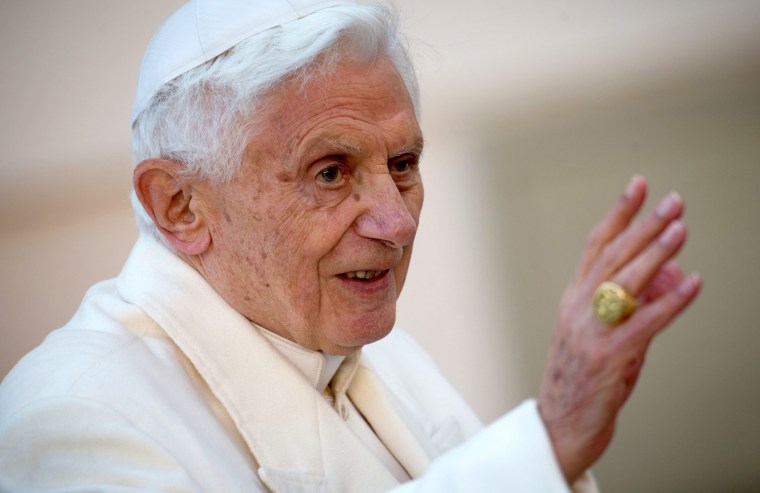Former Pope Benedict in a letter Tuesday denied that he ever tried to cover up the sexual abuse of children by Roman Catholic priests — his first published statements since he resigned in February.
Printed in the La Repubblica newspaper, the Emeritus Pope's comments were a reaction to Italian author, mathematician and well-known atheist Piergiorgio Odifreddi's book about the problems facing the church.
The book, titled "Dear pope, I write to you" was published in 2011.
"I have never tried to hide these things," Benedict wrote. "That the power of evil would penetrate to such an extent in the inner world of faith is a suffering which, on the one hand, we have to endure, while, on the other, we must at the same time, do everything possible to ensure that such instances don't happen again."
Victims have previously accused Benedict of not doing enough to stop the abuse of children by priests while he was pope.
The Survivors Network of those Abused by Priests (SNAP), rejected Benedict's comments on Tuesday.
"After six months of virtual silence (and complete inaction), a pope finally addresses the continuing clergy sex crime and cover up crisis in the church. The problem is: it’s the wrong pope. And it’s the wrong message," a statement from the group read.
Benedict became the first pope in centuries to resign when he retired on Feb. 28. Two weeks later, Pope Francis was elected.
"We challenge [Benedict] to, right now, publicly name even a handful of the tens of thousands of bishops, priests, nuns, brothers and seminarians who have committed or concealed sexual violence against children," SNAP said in the statement. "Especially those who are still on the job. Especially those who've been transferred from one nation to another."
The rest of the letter published in La Repubblica mentioned other aspects of the author's book, including Odifreddi's take on theology and the conflict between good and evil.
Benedict's letter also challenges Odifreddi for the "aggressiveness" of his book, and responds to many of the arguments raised with harsh criticism himself.
"What you say about the figure of Jesus isn't worthy of your scientific standing," wrote Benedict.
He similarly criticizes Odifreddi's "religion of mathematics" as "empty" since it doesn't even consider three fundamental themes for humanity: freedom, love and evil.
On evolution, he wrote: "If you want to substitute God with Nature, the question remains: What does this Nature consist of? Nowhere do you define it and it appears rather like an irrational divinity that doesn't explain anything."
What made the letter published in La Repubblica more remarkable was that it appeared just two weeks after Pope Francis penned a similar letter to the newspaper's atheist editor.
A Vatican spokesman, the Rev. Federico Lombardi, said the appearance of the letters was pure coincidence. But the two missives provide evidence that the two men who live across the Vatican gardens from one another are of the same mind about the need for such dialogue and may even be collaborating on it.
The Associated Press and Reuters contributed to this report
